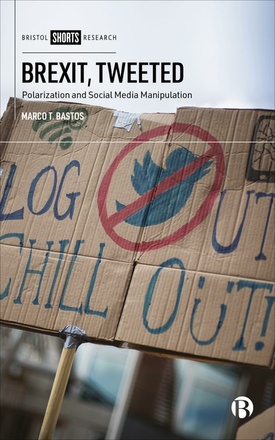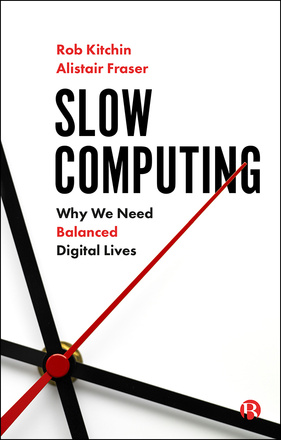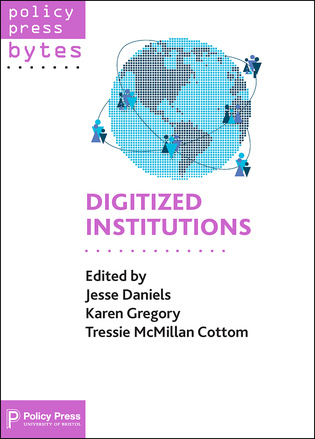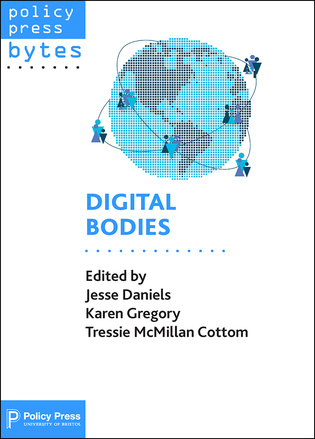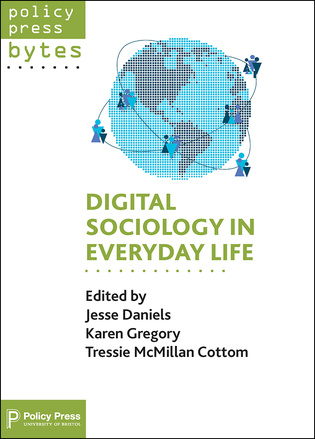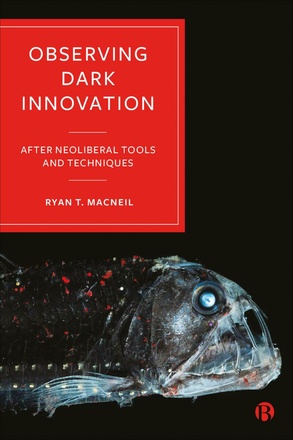Science, Technology and Society
Brexit, Tweeted
Polarization and Social Media Manipulation
Dissecting 45 million tweets posted by 265.000 users in the five years that followed the Brexit referendum, this book presents an extensive and nuanced analysis of social media manipulation and Brexit.
Moral Gravity
Staying Together at the End of the World
This radical book unsettles how we think about taking responsibility for environmental catastrophe.
Going beyond both hopelessness and false hope as responses to climate change, Hill envisions a society that does not centre human beings at its core and calls for sustaining a coexistence of animals, plants and minerals bound by one planet.
Experiments in Automating Immigration Systems
Identifying a pattern of risky experimentation with automated systems in the Home Office, this book outlines precautionary measures that are essential to ensure that society benefits from government automation without exposing individuals to unacceptable risks.
The Mutant Project
Inside the Global Race to Genetically Modify Humans
An anthropologist visits the frontiers of genetics, medicine, and technology to ask: whose values are guiding gene-editing experiments, and what are the implications for humanity?
Slow Computing
Why We Need Balanced Digital Lives
Is it possible to experience the joy and benefits of computing in a way that asserts individual and collective autonomy?
Drawing on the ideas of the ‘slow movement’, Slow Computing sets out numerous practical and political means to take back control and counter the more pernicious effects of living digital lives.
Mistrust Issues
How Technology Discourses Quantify, Extract and Legitimize Inequalities
Discussing the political understandings of trust and mistrust in the context of data, AI and technology at large, this book defines a process of trustification used by governments, corporations, researchers and the media to legitimise exploitation and the increasing of inequalities.
What Is Cybersecurity For?
Cybersecurity is one of the key practical and political challenges of our time. This book explains the complexities of global information systems, the challenges of providing security to users, societies, states and the international system, and the multitude of competing players and ambitions in this arena.
Digitized Institutions
In this Byte, the contributions consider the way that digitally meditated social processes are transforming institutions. It examines the interconnectedness of institutions and considers digitization across schooling, work, and media, with an eye on inequality.
Digital Bodies
The pieces in this Byte raise important questions about what it means to bring our embodied selves into contact with digital media technologies. The selections expand our understanding of what it means to live in and through bodies augmented by digital technologies within a deeply unequal social world.
Digital Sociology in Everyday Life
Chapters in this Byte cover topics such as designing a research framework and how to work ethically as a digital researcher, continually interrogating one’s position as a researcher and reflecting on the process of knowledge creation. Cumulatively, they highlight the value of sociological theory for understanding our digital world.
Biomedical Innovation in Fertility Care
Evidence Challenges, Commercialization and the Market for Hope
Available Open Access digitally under CC-BY-NC-ND licence.
This book analyses the clashes between evidence-based medicine and the dynamics of an increasingly privatised fertility care industry. With a unique focus on "add-on" treatments, it reveals how these controversial treatments are now widespread and can border on hopemongering.
Observing Dark Innovation
After Neoliberal Tools and Techniques
Why does scholarship on innovation tend to fixate on particular classes of technology while neglecting others? This book shows how common methodological tools and techniques of innovation carry neoliberal market biases that dominate the field. It is a resounding call for critical scholars to rethink the organisation of the discipline.







